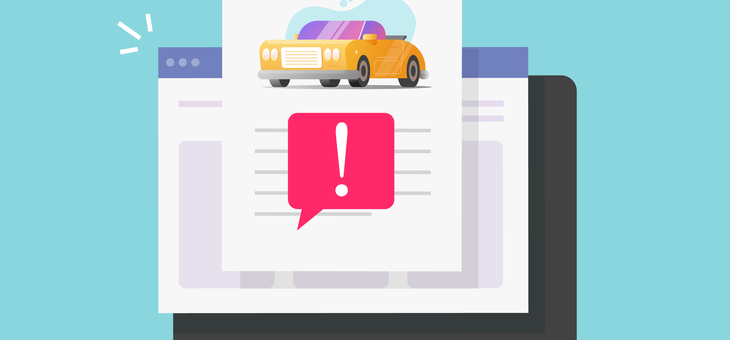Scammers are impersonating the military in the latest scam attempting to con people out of their money.
The scam, which targets online shoppers typically buying big ticket items such as used cars, sees the perpetrator make fake listings at attractive prices, explaining that they need to sell quickly because they are about to be deployed overseas.
In the vehicle scam, which has cost Australians $288,000 in the first quarter of this year, people post fake online listings to sell in-demand cars at well below market value to lure potential buyers looking for a second-hand vehicle.
Read more: Standard tax deduction could save time and money
Scammers seek payment to secure the car for the buyer but never deliver the vehicle.
Vehicle scams are commonly hosted on sites such as Facebook Marketplace, Autotrader, Car Sales, Cars Guide and Gumtree.
Australian Competition and Consumer Commission (ACCC) deputy chair Delia Rickard said that Australians had already lost more money to vehicle scams in the first quarter of this year than all losses reported to Scamwatch in 2019.
Read more: Big four banks dragged to court over credit ‘rort’
“As second-hand car sales increased during the pandemic, unfortunately so did vehicle scams. If current trends continue, Australians could lose much more to vehicle scams this year than the $1 million lost in 2020,” Ms Rickard said.
“We want to raise awareness of these scams to reduce the number of people who may be vulnerable to them.”
Used car prices have continued to break records in the first quarter of 2021, with prices 37 per cent higher than they were in the pre-pandemic high set in February 2020.
In 97 per cent of reports received by Scamwatch this year, the scammer claimed to be in the military (navy, army and air force), or to work for the Department of Defence, and said they wanted to sell their vehicle before deployment.
This sought to create a sense of urgency with buyers and explained the unusually low listing price of the vehicles and why buyers could not inspect them prior to payment.
Read more: Financial advisers lobby for permanent reduction in regulation
Email addresses that do not bear the legitimate the defence email format of @defence.gov.au may be an indication of a scam, but even the correct email format does not guarantee the car ad is not a scam, as scammers are able to spoof email addresses. It is best to look for all warning signs to avoid being scammed.
“A price that is too good to be true should be a warning sign for potential buyers,” Ms Rickard said. “If a classified ad offers a vehicle at a very low price, the ad might not be legitimate.
“For example, one Scamwatch report noted a listing that advertised a car for nearly $10,000 below its market value to entice buyers looking for a bargain.”
Vehicle scammers often seek payment via a third-party website. A large number of reports to Scamwatch mentioned the use of escrow agents, a third party who is supposed to ‘hold’ the money from the buyer until goods are received, before releasing the funds to the seller.
Other commonly requested payment methods include eBay, direct bank transfer or international money transfers.
“If the seller claims to be unavailable and insists on payment before meeting the buyer or allowing them to pick up their new car, this should raise suspicions,” Ms Rickard said.
“It is relatively common for scammers to claim that they are travelling or moving away to avoid meeting buyers before payment.
“Always try to inspect the vehicle before purchase and avoid unusual payment methods. If you have any doubts, do not go ahead with the deal,” Ms Rickard said.
In addition to losing money to vehicle scams, around 20 per cent of consumers who reported vehicle scams have lost personal information, after providing their address, phone number and copies of their driver’s licence to the scammer.
To protect your identity, never provide your personal details to someone you have only met online.
“Fortunately, over 80 per cent of people who reported vehicle scams to us managed to avoid losing money by identifying the scam early. We encourage consumers to trust their instincts. If something seems too good to be true, it probably is,” Ms Rickard said.
UPDATE: Autotrader, Gumtree Cars and CarsGuide issued the following statement in response to the findings.
“The safety and security of our community across our platforms – Autotrader, Gumtree Cars and CarsGuide – is a top priority. We take any form of online scam seriously,” the statement read.
“To ensure our users have a safe and successful experience, we implement a number of safeguards. This includes a ‘Buy and Sell Safely’ guide that is permanently linked to any vehicle listing page on CarsGuide and Autotrader; help and security pages across CarsGuide, Autotrader and Gumtree with advice on how to remain vigilant when using an online marketplace; and a ‘Report Ad’ function on every listing which allows users to report any ad that seems suspicious.
“Additionally, Gumtree remains Australia’s favourite local marketplace with a 99 per cent safe trading success rate on that platform.
“As with any online marketplace, we rely on our user’s feedback to keep the platforms safe and we strongly encourage our engaged communities to report any concerning listings believed to be unlawful in any way.
“Awareness is a critical step in identifying scammers online and that’s why we’re pleased to support the ACCC in their efforts to raise awareness and provide information to support Australians looking to buy or sell a second hand vehicle online.”
Have you lost money in a used car scam in the past year? Are you in the market for a new car this year? Did you know there were scammers operating on used car websites?
If you enjoy our content, don’t keep it to yourself. Share our free eNews with your friends and encourage them to sign up.

